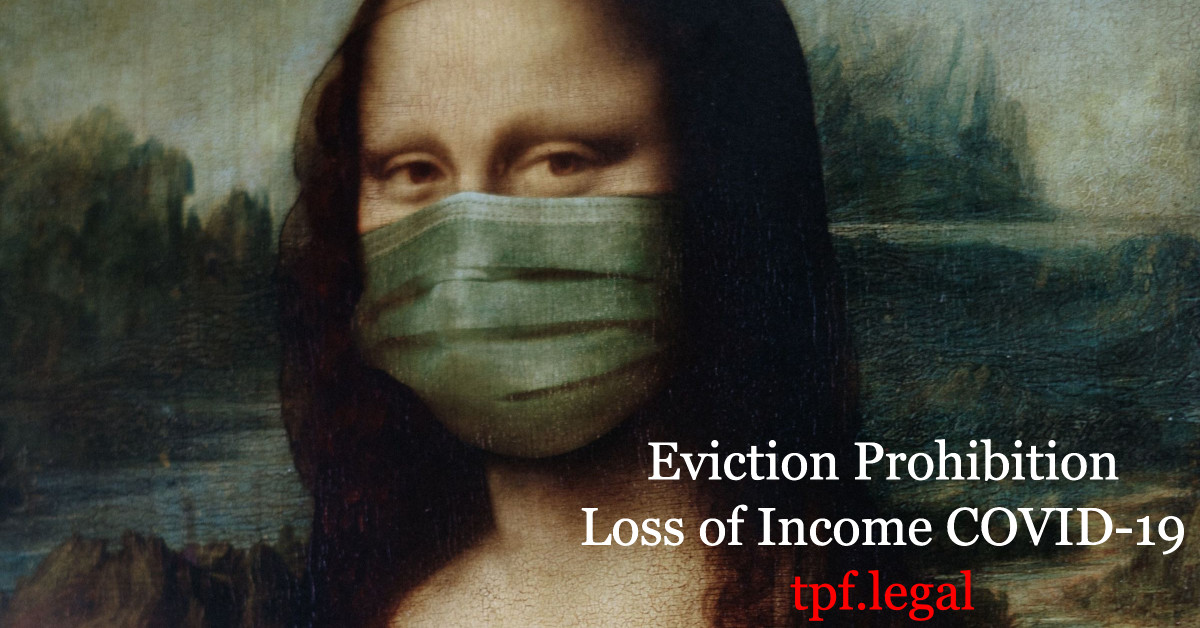On March 16, 2020, the Governor of the State of Maryland, Governor Hogan, issued an executive order that put into effect an eviction prohibition for Maryland residential tenants suffering a substantial loss of income due to COVID-19.
The order achieves this by instructing the Courts not to give grant landlords a warrant for restitution (order of eviction) in cases where a tenant can prove that they are unable to pay their rent due to loss of income from COVID-19. In the proceeding paragraphs I will cite language directly from the order that will be broken apart by my commentary.
“Until the state of emergency is terminated and the catastrophic health emergency is rescinded, the effect of Section 8-401 of the Real Property Article of the Maryland Code is hereby suspended as follows:”
Alright so, before we go any further Section 8-401 of the Real Property Article of the Maryland Code is the law that allows Landlords to file failure to pay rent actions against their tenants. So what this is saying is that it’s about to place limitations on a landlords failure to pay rent remedy while Maryland is in a State of Emergency due to COVID-19. The next section expounds on those limitations. I will go through the next section line by line since it’s pretty long.
“No court shall give any judgment for possession or repossession, or warrant for restitution of possession or repossession of residential real property,…”
So what this is saying is that in the scenario that’s about to follow a Court cannot issue an order evicting residential tenants. Commercial tenants are not protected by this order.
“if the tenant can demonstrate to the court, through documentation or other objectively verifiable means, that the tenant suffered a substantial loss of income resulting from COVID-19 or the related proclamation of a state of emergency and catastrophic health emergency,”
Translation – The burden of proof is on the tenant to show the Court that they have loss income due and are unable to pay their rent due to COVID-19.
“including, without limitation, due to job loss, reduction in compensated hours of work, closure of place of employment, or the need to miss work to care for a homebound school-age child.”
This gives sample reasons for a Court to find that a tenant qualifies to have their eviction prohibited.
So What Should Tenants Do Suffering A Substantial Loss of Income Due To COVID-19?
I think the key takeaway here is that the tenant has the burden of proof of objectively proving their loss of income due to COVID-19. So tenants need to be pro-active and gather their documentation. Tenants should look at the sample reasons provided above and try to gather evidence to prove that. For example, if an employee is laid off due to COVID-19, a letter from your employer stating that the tenant was laid off as a direct result of COVID-19 is worth it’s weight in gold.
What Should Landlords Do If Their Tenant Aren’t Paying Rent Possibly Due to COVID-19?
Landlords should communicate with their tenants prior to filing a failure to pay rent action to ask for proof of the tenants loss of income due to COVID-19. If the tenant provides reasonable proof, the landlord should just not file. However, if the tenant is unable to provide reasonable proof then they can file. Remember, the tenant has the burden of proof to assert this defense.
This Legal Defense Is Only Temporary
Lastly, both landlords and tenants should be aware that this legal defense is only temporary and available while Maryland is in a State of Emergency due to COVID-19. That said, this crisis is fairly new. I would not be surprised if legislation is passed in the future to give affected tenants another defense.
- How Can I Evict An Employee or Caregiver I Fired That Refuses to Leave in Maryland? - February 6, 2023
- Can A Tenant Leave Property Before The Lease Agreement Expires in Maryland? - January 29, 2023
- Can I Be Evicted or Locked Out By My Wife, Husband, Boyfriend, or Girlfriend in Maryland? - January 28, 2023


Facebook Comments